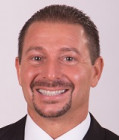Meeting Common Core Standards through Teamwork and Teacher Development
Connect with the author
Common Core Standards are meant to assure that students, no matter where they live, receive a similar quality and quantity of education. As of June 2014, 43 states have accepted these standards or related assessments, replacing the variety of standards and tests that states and local school districts previously used. In practice, this effort to promote national standards relies on tests and accountability measures for students, teachers, and school systems – with sanctions for those that fall short. But many educators, school administrators, and parents are frustrated with a purely testing-oriented approach, because teachers are not given the support for professional development they need to ensure that their students can meet standards.
Meriden, Connecticut, a small-urban district in the center of Connecticut with approximately 9,000 students, is showing that providing teachers with support – through efforts such as peer-coaching and team strategy meetings – can be a more productive way than accountability measures alone to ensure improved student learning to meet core state standards.
Collaborative Support Strategies
Within its comprehensive Educator Evaluation and Development Plan, Meriden deploys a number of strategies meant to build upon and reinforce ties among teachers, emphasizing peer learning and support for teacher improvement in the process of doing assessments.
- Meriden Teachers Sharing Success is supported district-wide, with teachers covering for one another in the classroom while individual instructors take advantage of training programs and have time to meet with colleagues. The program allows teachers to shadow trained staff whose students have achieved at higher than average levels for the district for a minimum of four years. Teachers can take advantage of this program apart from any sort of evaluation. In this way, the Meriden Public Schools balance accountability measures with opportunities for teachers to improve and develop their skills. Researchers have found this balanced approach to be effective.
- Learning Walks is a teacher-led process in which Meriden teachers regularly participate. It features visits by teams of teachers to one another’s classrooms, where observations are made and information is collected to further efforts at school improvement. Substitutions are arranged to allow teachers to take the time to make observations in colleagues’ classrooms. The idea is to help teachers learn from one another – and, at the same time, identify areas where the school needs to encourage improvements. When a teacher observes a colleague’s classroom, someone participates in a non-evaluative observation to collect data that will then be used for school improvement efforts. Having this process driven by teachers – rather than imposed from above – increases the likelihood that teachers will follow up with each other, persist in learning to do better, and feel empowered to contribute to school improvements. This fosters exactly the right mindset for everyone in the school system.
- The Leadership Academy is a two year program within the Meriden Public Schools where teachers develop leadership skills needed for them to take a larger role in improvement efforts. Participants are provided specialized training as they shadow other leaders and plan and implement an improvement project for their district. To join this program, teachers must apply and provide a writing sample. Graduates of the program have gained the skills needed to work collaboratively on innovations that promise to accelerate learning for both students and staff.
As the Meriden Evaluation and Development Plan is implemented with these and other key components, shared goal-setting and complimentary teacher evaluators are encouraged. In team meetings, teachers are encouraged to set goals to further the overall needs of the school, share instructional strategies and materials, and thus take shared ownership of goals and ways to meet them. The idea is not only to go beyond tests to build teacher capacities, but also to encourage systemic and sustained problem-solving, avoiding fragmented efforts that add up to very little. This approach has been described by education researcher Michael Fullan as using “social capital to build the profession.” To make it work, teacher leaders must be trained to support other teachers to set goals, define standards for evaluation of performance, and analyze the necessary data. Evaluation happens, but in a context of collegial support, collective accountability, and support for the development of each teacher’s professional capacities.
Regular Meetings between Central Administrators and Unions
Regular communication between administrators and unions are another key component of reform efforts in Meriden. Administrators meet each week to discuss the central direction of the district and help everyone work together for shared goals. Once a month, these meetings include representatives from the Meriden Federation of Teachers and the Meriden Administrators’ Association, with the aim of letting everyone have a say and building teamwork for collaborative problem-solving. Proactively planning to have a shared voice requires constant dialogue and collaborative problem-solving. If school districts want educators to collaborate and learn from one another, then this process must be modelled at the top. These meetings have been in place for five years and have helped Meriden launch full-day kindergarten and school programs with expanded learning time, as well as other new policies such as the restructuring of schedules to allow for collaboration time for teachers.
Making a Difference
In Meriden, administrators and teachers value social learning and are now seeing positive results from carefully planned programs to encourage it. Recent surveys of teachers, compared to earlier surveys, show that many perceive that they are getting more support. Meriden teachers see a more positive school climate and say they feel more respected and supported by administrators. Improving school performance takes constant effort and there is a long way to go in Meriden, as elsewhere. But the district is showing that improvements come faster with approaches that go beyond testing alone to strengthen and leverage social ties to support classroom innovations and professional development for teachers.
For more information on Meriden programs, see www.meridenk12.org. Research for this brief was drawn from Michael Fullan, “Choosing the Wrong Drivers for Whole System Reform,” Centre for Strategic Education, April 2011; and Mona Mourshed, Chinezi Chijioke, and Michael Barber, “How the World’s Most Improved School Systems Keep Getting Better,” McKinsey & Company, 2010.

